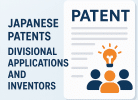Dr. Honjo Tasuku, a winner of the 2018 Nobel Prize for his research on cancer-fighting technologies, is making good on his threats to fight Ono Pharmaceuticals, the manufacturer of the treatment drug Opdivo, which signed a contract to use his discoveries of protein PD-1 in this pharmaceutical. Honjo has claimed for some time that the remuneration to himself was far below fair market value of such an invention, and now filed a case against Ono Pharmaceuticals in the Osaka District Court as of June 19, 2020.[1]
As reported here before, Ono won a huge award in the United States when it was able to settle with Merck over infringement of the patent Honjo’s work had been awarded. Honjo says he had been promised (verbally) 40% of that award by Ono in return for his cooperation in the proceedings.[2] Instead, Ono allegedly later informed Honjo it would give him 1% of royalties instead.[1]
Honjo’s lawyer also alleges that Ono offered, after various overtures from Honjo’s Kyoto University, to set up a fund up to US$270 million (JPY 30 billion, a good bit less than what Honjo would have received) for Kyoto Unversity’s research (which has been Honjo’s passion and his intended recipient of his royalties) as a replacement for the past negotiated royalties[2]–but this is not acceptable to Honjo, who has been arguing that researchers in academia are short-changed in Japan by corporations. Honjo’s claim aims to win the difference between the 40% of royalties (for 2017-2019) from the Merck settlement and the royalties offered by Ono, and stir public sentiment for greater appreciation by companies for academic contributions to innovation.[1]
Meanwhile Ono, of course, has its reasons. Pharmaceutical companies in Japan have reacted to Honjo’s challenge to Ono. They note that pharmaceutical research is extremely unlikely to produce valuable drugs, statistically speaking, so there is no good indicator that a company should pay huge amounts to inventors. Some say that (at least in Japan) an employee of a pharmaceutical company could expect remuneration calculated at 0.75-2% of royalties for any normal invention. [3]
In the public’s eye, Honjo has the upper hand. Academics and corporations will need to improve communication about reality in the spheres they know better, and hopefully collaboration will grow more fruitful (as the Japanese government’s vision for Japan’s economic growth boosted by inventions suggests), not alienated.
* The information provided on this website is for informational purposes only and is not intended as legal advice.
** For questions or consultation, please contact us for more information.
Taro Yaguchi.
Sources
[1] Kyodo News. “Nobel laureate Honjo sues Ono Pharmaceutical over patent royalties.”
https://japantoday.com/category/business/nobel-laureate-honjo-sues-ono-pharmaceutical-over-patent-royalties Japan Today. June 20, 2020. Accessed June 22, 2020.
[2] Nikkan Gendai. “本庶氏vs小野薬品の裁判 特許収入巡りこじれた決定的理由” https://www.nikkan-gendai.com/articles/view/money/274520 June 13, 2020 (updated June 13, 2020). Accessed June 22, 2020.
[3] Tsuchimoto Tadataka. “ノーベル賞本庶氏との特許闘争で小野薬品が「対価は売上高の1%」と主張する根拠 []” https://diamond.jp/articles/-/240345






